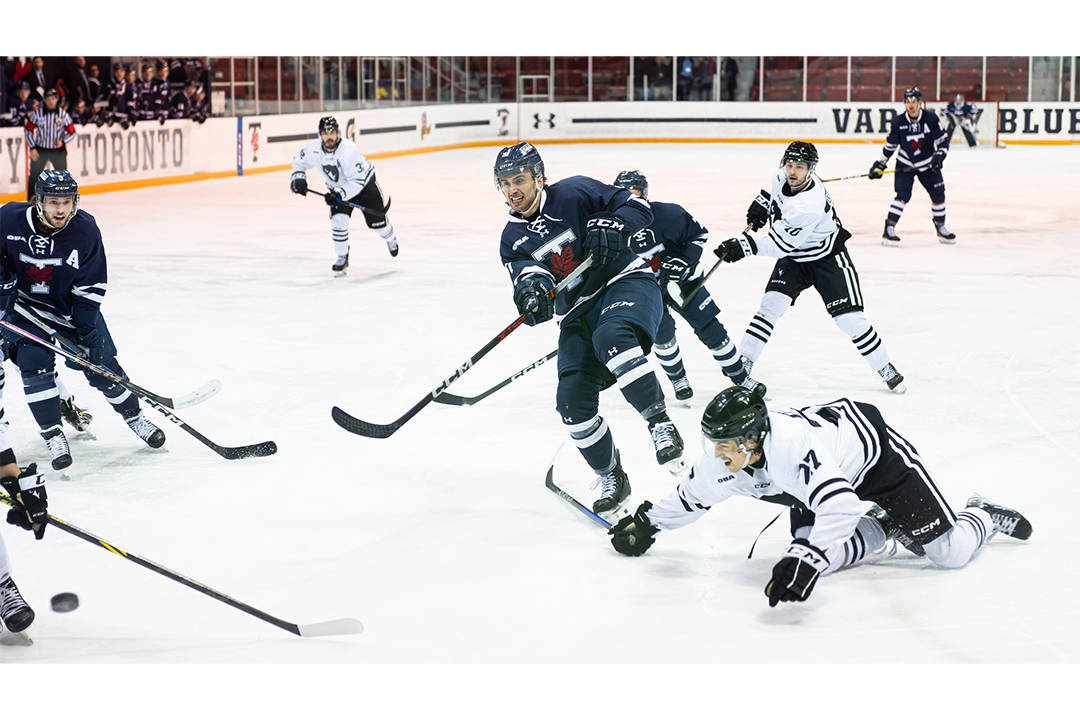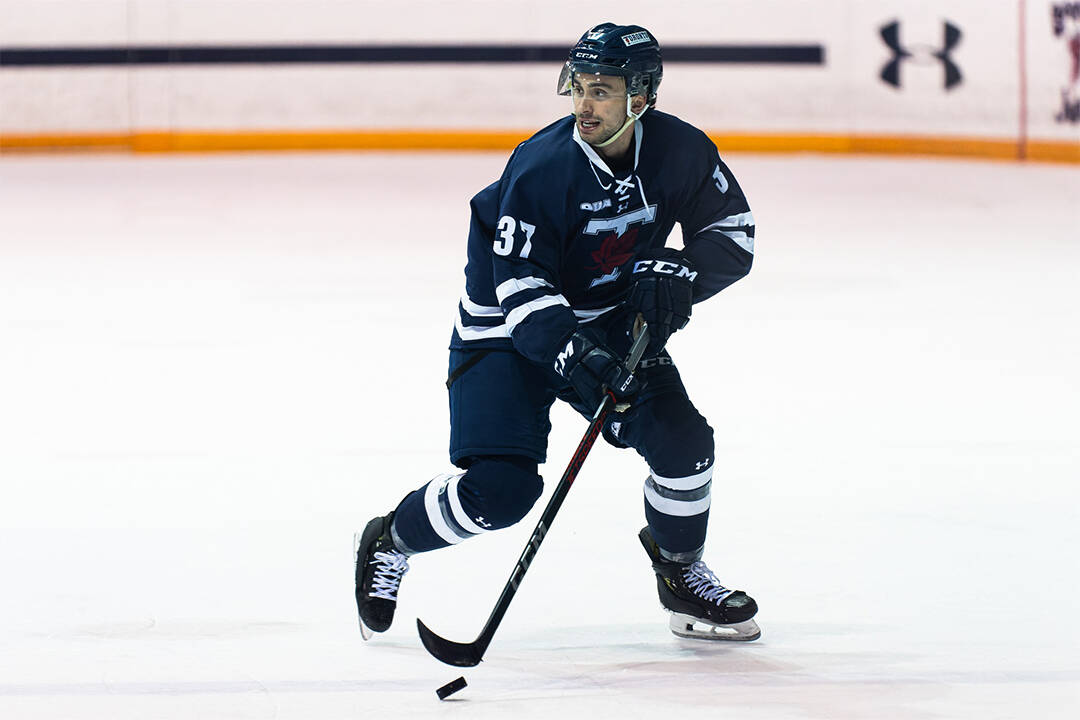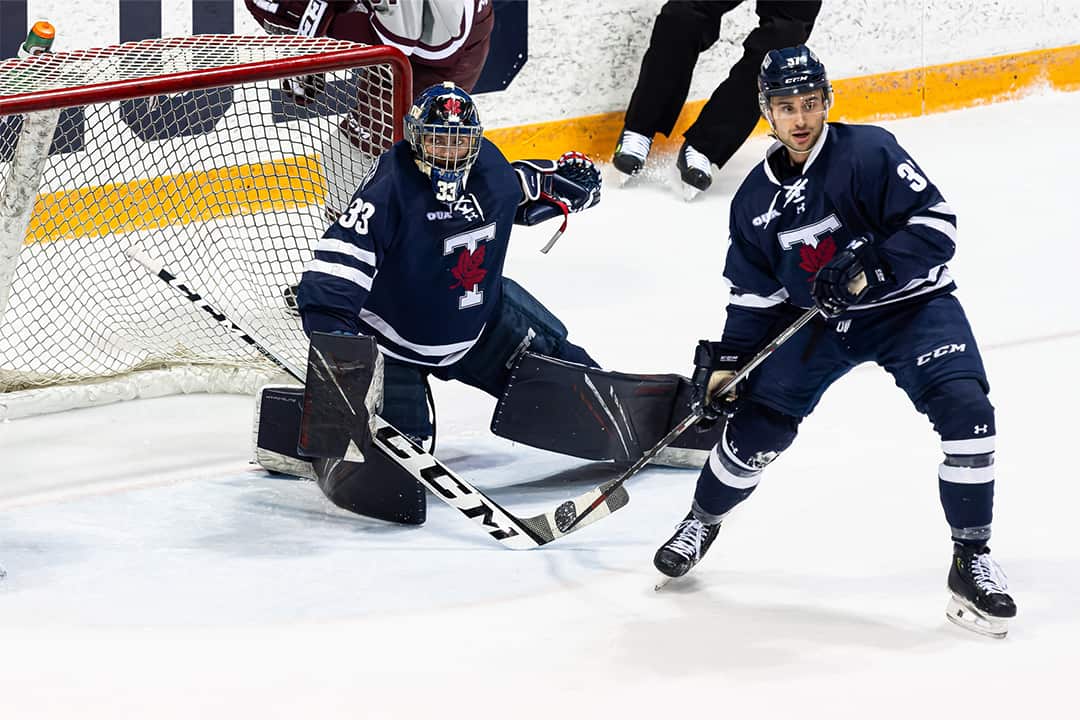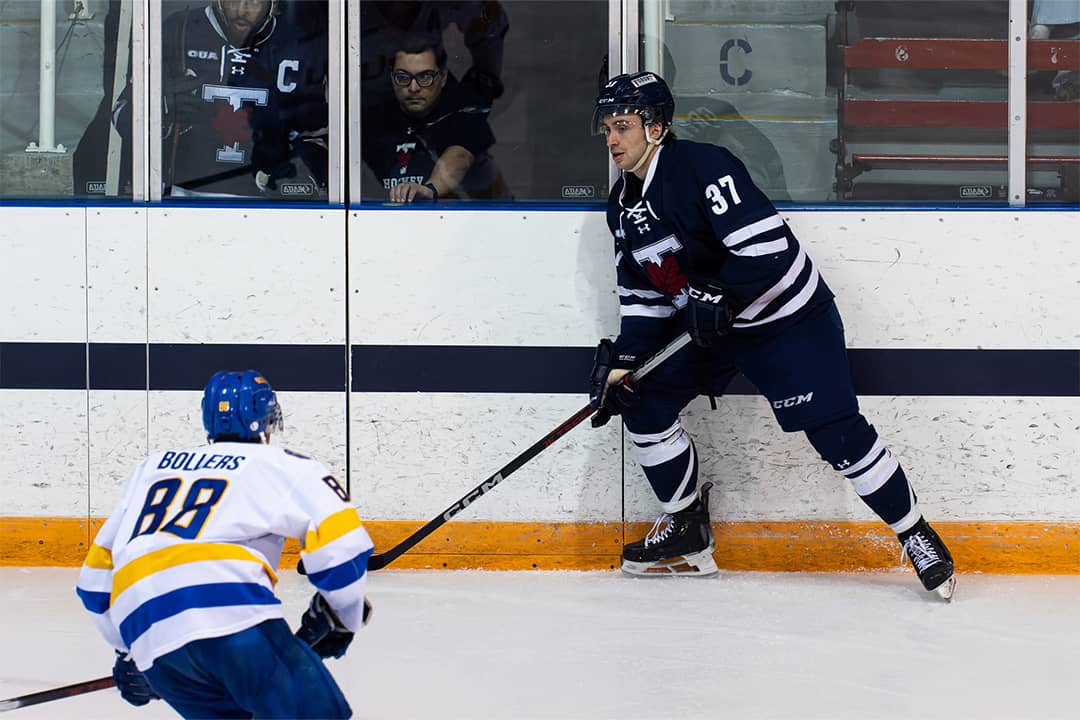On March 5, Varsity Blues defenseman Nick Grima officially signed his contract with the Indy Fuel of the East Coast Hockey League (ECHL), fulfilling his longtime goal of playing professional hockey.
However, his journey to the league didn’t come easily. In an interview with The Varsity, Grima detailed the obstacles he encountered and overcame throughout his time at U of T and how they have shaped him today.
Early days
Like most Canadians, Grima’s love for hockey was largely fostered by the culture surrounding him. The fourth-year kinesiology student credits his parents for deepening his interest in hockey.
Specifically, as his father was an athletic therapist for several junior teams, Grima fondly recalls his time spent on and around the rink when he was younger. “My mom would bring me from school or daycare… and go watch the game[s] and wait for my dad after. Being around the rink kind of grew my passion,” he explained.
After his parents enrolled him in figure skating lessons, Grima progressed quickly to playing house league at the age of five where he began trying out different positions. “At 10 years old is when I kind of figured out that I wanted to be a defenseman,” he said. “I was also a little bit bigger of a kid, maybe not as fast, so I don’t know if I had much to waste.”
Grima continued playing with various Greater Toronto Hockey League teams, including the Vaughan Kings, Toronto Marlboros, and Toronto Titans. Yet, at age 15, he decided to leave home and later began playing in the Ontario Hockey League (OHL). “That’s when it really became a goal [to] play professionally at some point,” he stated.
Across five years in the OHL, Grima played for the Peterborough Petes, Sarnia Sting, and North Bay Battalion. With an initial goal of playing in the NHL, Grima went undrafted and had to put his dream on hold, electing to focus on his education at U of T while keeping up his game with the Varsity Blues.
“Even though [my original goal] didn’t happen… I still had pro hockey on my mind, but I was able to utilize [the OHL schooling package],” he added. The scholarship provides tuition, books, and compulsory fees toward an undergraduate degree for each season the player plays in the OHL.
Despite only playing with the Blues for two full years because of the pandemic, Grima made a clear impact on the team. He led their defensemen in every offensive category, minutes played and plus-minus this season, earning a career-high 25 points. Despite his success, Grima remembers his time spent travelling and bonding with teammates most fondly, particularly overnight trips to Quebec or Lakehead. “Those [trips] were really good times that really brought our team together.”
The decision
Other than hockey, Grima has plans to pursue a career in teaching or coaching in the future, crediting his time at U of T for sparking his interest in various academic disciplines. Although he was originally planning to pursue the sports therapy side of his program, he recalls thoroughly enjoying his experience taking the teaching and coaching courses that he heard about from upper-year students on the team.
“I got to do a course [about early development] working with U of T’s daycare, which was pretty cool… being in environments where you [can try] things out [is] pretty awesome,” he said.
Nevertheless, multiple factors were involved in deciding whether to continue his education or his playing career. “It was kind of tough because I didn’t really understand what I wanted to do yet,” he recalled. He had applied to Ontario Institute for Studies in Education for teacher’s college, which would enable him to “stay at home [and] play another two years [in a] comfortable environment.”
Ultimately, Grima decided to take the leap and continue playing. “At the end of the day [I thought] about what I really want to do [and] what’s been my goal since when I was young,” he explained. “I don’t think it’s fair to me, my family, and the people that helped me [to not go] all in, whether it’s school or hockey. I thought it would be time to take the chance and see how things go.”
Grima, though, still emphasizes how his time at U of T has shaped him. “[Going to U of T played] a big part in who I am today. The decision I made [led to] me still wanting to continue my education even after my undergrad, which is something that I honestly didn’t think I wanted to do… [There are] countless things that are being put towards you and [supporting you] to succeed educationally and performance-wise.”
Grima’s story highlights the importance of taking an all-or-nothing approach when faced with opportunities and learning from every experience to succeed beyond athletics. “Sport comes to an end for everyone, and that was one thing my parents always told me… [It’s important to] find something that you enjoy and [to educate] yourself.”






No comments to display.